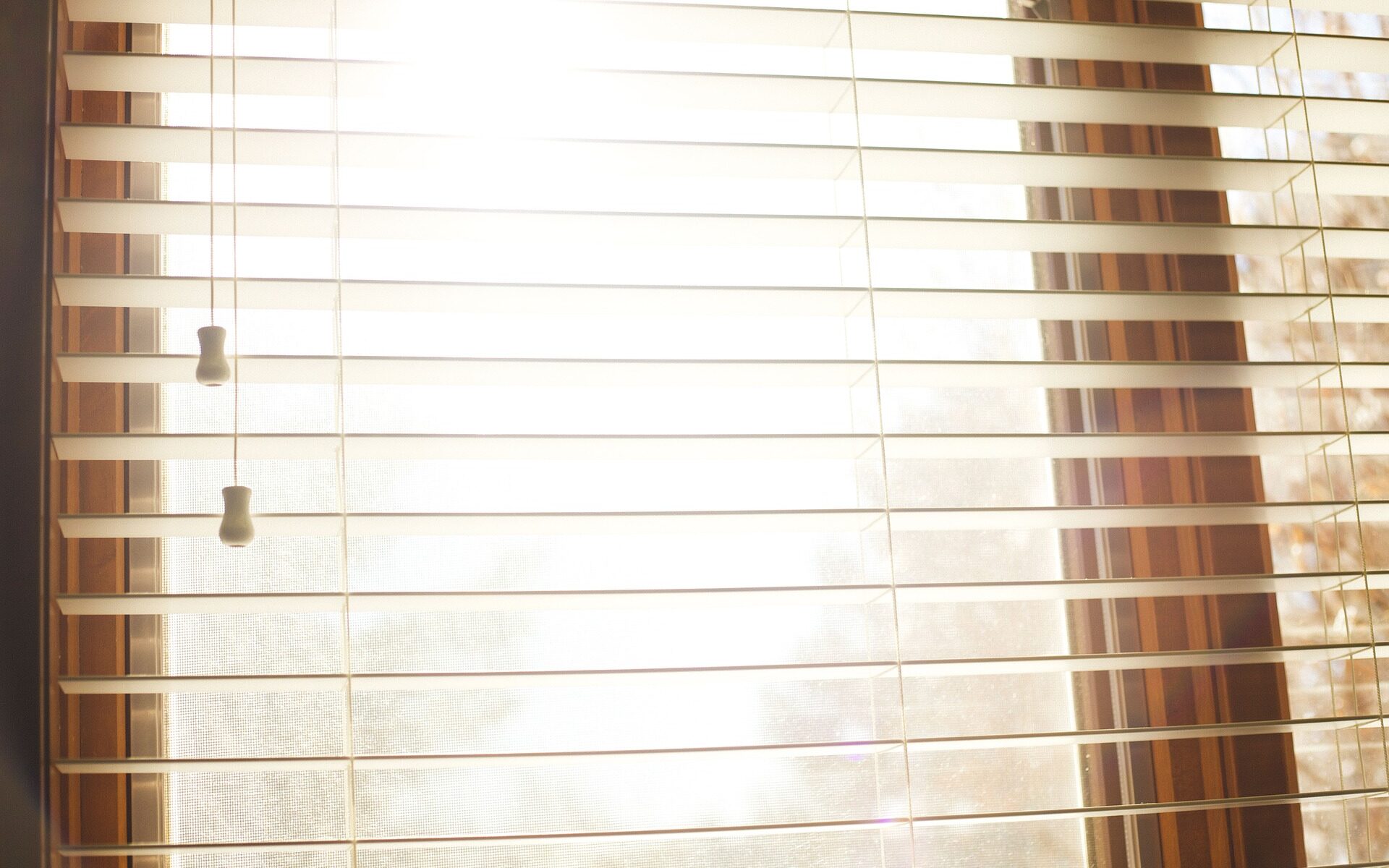
Choosing a window treatment is one of the first major design decisions that you make as a homeowner. More than just home decor, window treatments help control sunlight and offer an essential layer of privacy. Since blinds are some of the most popular window treatments to install in a home, you might be surprised to learn that there are actually several disadvantages when it comes to choosing blinds as a window treatment. Take a look at these 5 reasons why blinds should be avoided:
Blinds Are Less Durable Than Plantation Shutters
Blinds are easily broken and frequently need to be replaced. It’s common for blinds to tear or for the slats to bend. Blind cords, too, often become tangled or damaged, making it difficult to open and close the slats. If you have children or pets, then the risk of accidental damage to your blinds is even higher. Even just pulling too hard on a blind can cause it to snap.
When it comes to durability, hardwood plantation shutters are an ideal choice. Wood is one of the strongest available materials, and even faux wood blinds never last as long as hardwood plantation shutters.
Blinds Are Not Long-Lasting
Since the typical materials used for blinds, including PVC and aluminium materials, don’t last as long as wood, they’re not the best long-term choice for a home. Plantation shutters, meanwhile, are designed to last decades. While you can purchase wooden blinds, plantation shutters allow you greater light control and energy-efficiency. Plus, unlike blinds or other window treatments, such as curtains, plantation shutters are considered to be a permanent fixture of the home. This is why plantation shutters are one of the few home upgrades that can potentially increase the resale value of your house.
Blinds Are Not the Best Choice for Children’s Rooms
Sturdy window treatments are especially important for children’s bedrooms and play areas. Not only are blinds easily damaged by young children, but the dangling cords can actually be hazardous. Plantation shutters do not have cords or other dangling materials that could pose a risk to kids. This is why plantation shutters are a favorite of nurseries and children’s bedrooms. Plantation shutters are also sophisticated enough to grow with your child’s changing decor preferences. You can choose neutral or colorful plantation shutters. You could also pair plantation shutters with a decorative valance.
Plantation Shutters Are More Aesthetically Pleasing Than Blinds
Hardwood plantation shutters give character to the rooms in your home. Wooden furniture has been a staple of home decor for centuries, and wooden plantation shutters easily blend in with wooden furnishings. Stains or cream-colored plantation shutters are stylish options for home decor, but many people also choose from a selection of custom colors.
The versatility of plantation shutters is unique from blinds in that they are a subtle enhancement to a home. You can certainly make a dramatic statement with plantation shutters through the use of color, surrounding art work, or even layering fabric window treatments, like curtains, over plantation shutters. However, many homeowners enjoy the neutral look of plantation shutters, and this is an elegant look that is really achieved only through the shutters. You can install colorful blinds or wooden blinds, but they never seem to hold the same aesthetic appeal as plantation shutters.
Blinds Attract Dust and Odors
Certain types of blinds attract more dust than others. Pet hair, too, can gather on blinds and make frequent dustings a necessity. Some people complain of odors seeping into their blinds. Luckily, plantation shutters are easy to maintain, and wood is naturally antibacterial, so cleanliness is a breeze. You don’t have to worry about furniture polishes or dusting sprays to clean your plantation shutters. In fact, these cleaning supplies can actually be extremely damaging to your plantation shutters. Instead, you only need to use a soft cloth or lamb’s wool wand to gently wipe the louvers (horizontal slats) clean.
Plantation Shutters at Shenandoah Shutters
Shenandoah Shutters has been manufacturing custom made, hardwood plantation shutters in Richmond, Virginia since the 1990s. We provide handcrafted plantation shutters within our service areas of Virginia, Maryland, and Washington, D.C.
We use American wood of the highest quality, strength, and durability to craft our plantation shutters. We typically use tough basswood for our stained shutters and the softer hardwood yellow poplar for our cream-colored varieties. Some customers choose to request a specialty wood, such as oak, mahogany, or cherry, in order to have their shutters match existing moulding or furniture. You can also request a certain type of tilt rod, as well as choose your desired louver size and shape.
With plantation shutters, you are able to precisely filter sunlight in and out of your home using the tilt rod. This gives each room of your home the perfect mood or ambiance.
Shenandoah Shutters can place plantation shutters on French doors, sliding glass doors, arches, and sunbursts. Even if you have an oddly-shaped or unusual window, we can install plantation shutters to fit your needs. Our original, patented Softedge design is a popular choice for contemporary looks, but especially tilt-ins and casements.
Schedule an Appointment with Shenandoah Shutters
Shenandoah Shutters remains open throughout the COVID-19 pandemic. If you’ve recently bought a new home or are looking to upgrade your home to an existing window treatment, then give Shenandoah Shutters a call today at 1-800-733-1549. You can also contact us online to learn more about our services and to schedule a consultation for plantation shutters.
